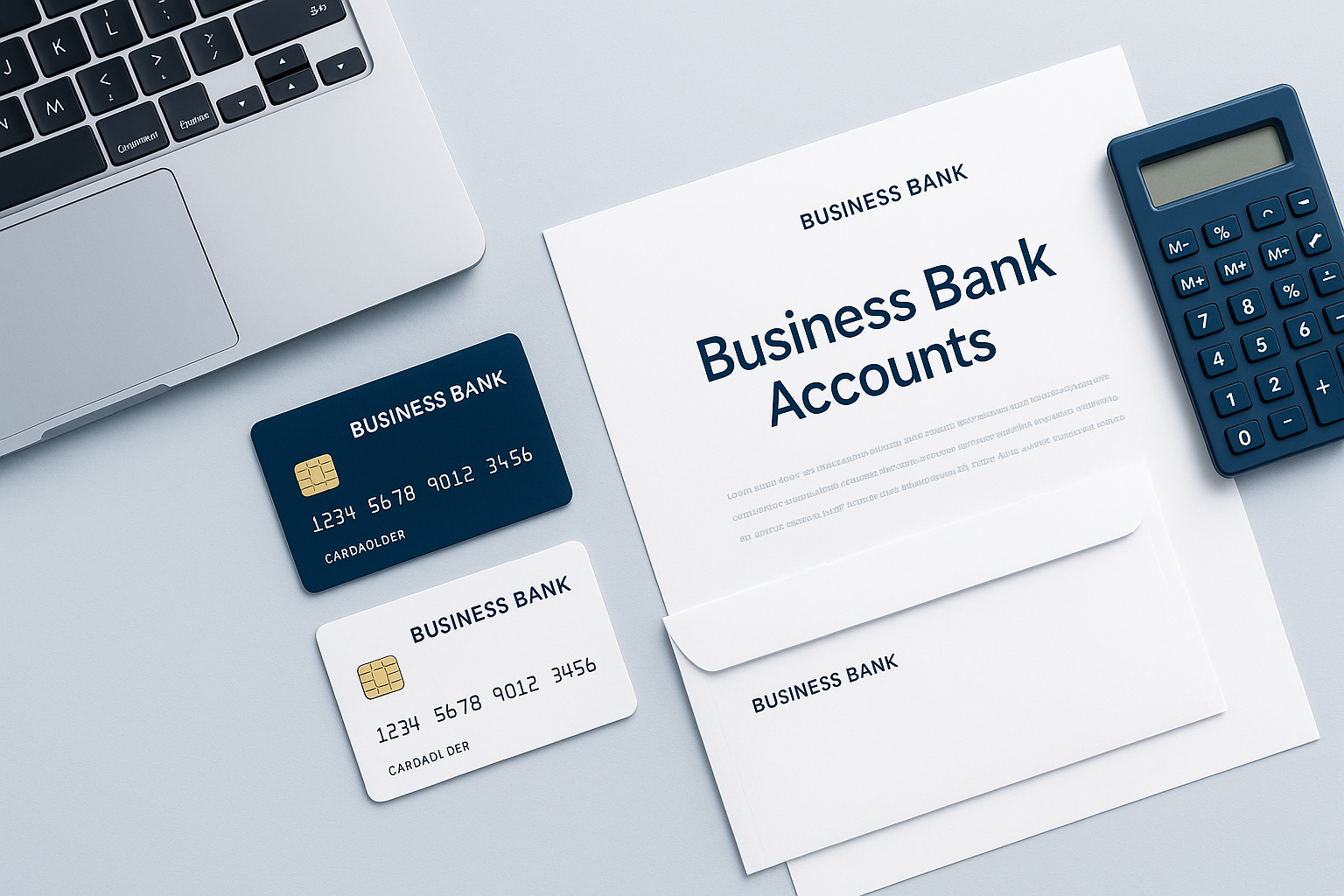 Business Bank Accounts
Business Bank AccountsBusiness Bank Accounts: Why They Matter and How to Choose the Right One
Published on 5/23/2025
Why Business Bank Accounts Matter
Running a business without a dedicated bank account is like trying to manage a company from a shoebox - possible, but risky and inefficient.
A business bank account not only keeps your personal and business finances separate (crucial for tax and legal reasons), but also:
- Establishes professionalism
- Simplifies accounting
- Enables better cash flow management
- Unlocks access to business loans and credit lines
Sole Traders vs Limited Companies
If you’re a sole trader, you aren’t legally required to have a separate business account - but it’s still a good idea. For limited companies, it’s a legal requirement since the company is a separate entity.
Key Benefits for Sole Traders:
- Easier tax returns
- Avoids co-mingling funds
- Access to tailored business tools
Key Benefits for Limited Companies:
- Fulfils legal obligations
- Improves credibility
- Easier to apply for funding or grants
Features to Compare
- Monthly fees
- Transaction limits
- International payments
- Integrated tools (like Xero or QuickBooks)
- Customer support access
Common Fees Explained
- ATM Withdrawals
- Incoming payments (especially from abroad)
- Cash deposits via Post Office or PayPoint
- Excess usage fees
How to Open a Business Account
Most modern accounts can be opened online in 10–15 minutes. You’ll usually need:
- Business name/type
- Proof of ID and address
- Business activity details
- Expected turnover
Tools to Help
Use our Business Bank Account Comparison Table to find the best match for your needs.
